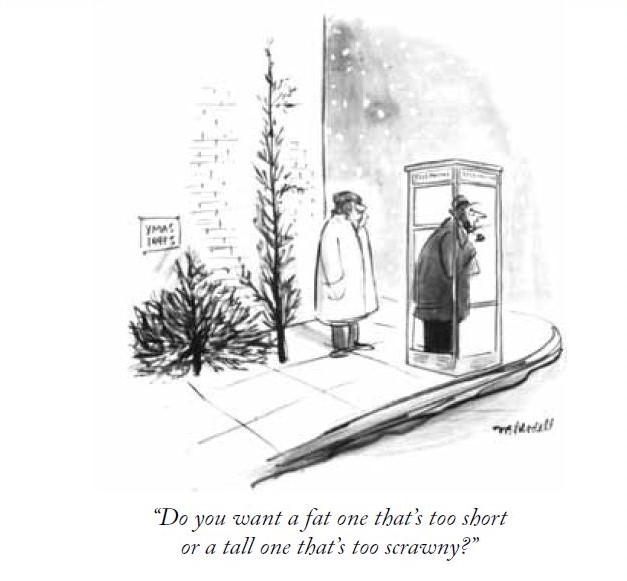Al Stine
Playboy, January 1954
Eldon Dedini
Playboy, January 1963
Alden Erikson
Playboy, December 1963
Whitney Darrow, Jr.
The New Yorker December 1, 1962
Ace, January 1973
William Steig
Esquire, January 1934
Charles Edward Martin
The New Yorker December 8, 1962
Frank Modell
The New Yorker December 12, 1963
The New Yorker December 15, 1962
The New Yorker December 19, 1964
The New Yorker December 22, 1962
Howard Shoemaker
Playboy, December 1967
Claude Smith
Playboy, January 1968
Showing posts with label WILLIAM STEIG. Show all posts
Showing posts with label WILLIAM STEIG. Show all posts
Thursday, December 13, 2018
Monday, September 25, 2017
50s Playboy
The first couple years of Playboy were basically put together in Hugh Hefner's kitchen with the photos bought from calendar companies and the other material was mostly reprints. The first issue was almost all black and white. Still, there are a lot of great cartoons to be found in those earlier issues.
Gardner Rea, from the second issue in January 1954 Virgil “VIP” Partch in February 1954 Arv Miller (March 1954) was one of the earlier contributors before he started his own imitation, Fling, from which I found a lot of the cartoons he used. Sam Cobean (April 1954) was a long-time gag cartoonist that probably drew more variations on the now-established cartoon cliches of the unwed mother being turned away in the snow and the man imagining the passing young woman naked than anyone else. May 1954 June 1954 July 1954 Hugh Hefner was an aspiring cartoonist himself but wisely quit for more more lucrative endeavors. I wonder what ever happened to him. William Steig, September 1954 Same issue October 1954
Gardner Rea, from the second issue in January 1954 Virgil “VIP” Partch in February 1954 Arv Miller (March 1954) was one of the earlier contributors before he started his own imitation, Fling, from which I found a lot of the cartoons he used. Sam Cobean (April 1954) was a long-time gag cartoonist that probably drew more variations on the now-established cartoon cliches of the unwed mother being turned away in the snow and the man imagining the passing young woman naked than anyone else. May 1954 June 1954 July 1954 Hugh Hefner was an aspiring cartoonist himself but wisely quit for more more lucrative endeavors. I wonder what ever happened to him. William Steig, September 1954 Same issue October 1954
Thursday, July 10, 2014
Comic Art here in America
Again from the chapter from the book Comic Art in America from 1959 by Stephen Becker, part of a chapter entitled A Century of Magazines: From Corny Almanacks to The New Yorker. All cartoons from the New Yorker unless otherwise noted.
Charles Addams, 1954 William Steig, 1952 Barney Tobey, 1954 Garrett Price, 1942 George Price, 1952 Sam Cobean, 1947 Cobean, 1950 Cobean, 1949 Cobean, 1952 Cobean, 1952 As per the captions in the book:
The breadline as seen by REGINALD MARSH in 1930. This was hardly comic art; it was an extension of the magazine cartoon into the area of social comment. Another breadline, seen a bit differently but no less effectively by ALEXANDER KING in Americana, December 1932. Eldon Dedini, 1959 Charles Elmer Martin, 1951 Chon Day, 1953 Richard Taylor, 1941 Claude Smith, 1953
Charles Addams, 1954 William Steig, 1952 Barney Tobey, 1954 Garrett Price, 1942 George Price, 1952 Sam Cobean, 1947 Cobean, 1950 Cobean, 1949 Cobean, 1952 Cobean, 1952 As per the captions in the book:
The breadline as seen by REGINALD MARSH in 1930. This was hardly comic art; it was an extension of the magazine cartoon into the area of social comment. Another breadline, seen a bit differently but no less effectively by ALEXANDER KING in Americana, December 1932. Eldon Dedini, 1959 Charles Elmer Martin, 1951 Chon Day, 1953 Richard Taylor, 1941 Claude Smith, 1953
Labels:
1930's,
1940's,
1950's,
CHARLES ADDAMS,
CHARLES ELMER MARTIN,
CHON DAY,
CLAUDE SMITH,
ELDON DEDINI,
GARRETT PRICE,
GEORGE PRICE,
REGINALD MARSH,
RICHARD TAYLOR,
SAM COBEAN,
WILLIAM STEIG
Saturday, February 22, 2014
Great Cartoons of the World VII, part 8
These are more excerpts from the seventh annual volume of Great Cartoons of the World from 1973.
The first cartoon by William Steig was in the New Yorker.
In the foreword, editor John Bailey describes what the contributors look like (previous examples can be seen in previous installments):
Steig is a true intellectual in the physical form of a dockworker. He is mainly surprising—he looks tough, but he is gentle and civilized. He never speaks without expressing his sense of humor, most often with some detectable ironic twist. Nothing about the artist's following of the artist being an avid follower of orgone therapy. On the other hand, there are and were several cartoonists that believed in all sorts of medical, religious, and political quackery but it usually doesn't spill into their work. Vahan Shirvanian, also in the New Yorker. Mischa Richter Bruce Petty Vladimir Renčin in Dikobraz James Stevenson Charles Elmer Martin Edward Koren Hans Moser Whitney Darrow, Jr. The final two were drawn by John Glashan.
The first cartoon by William Steig was in the New Yorker.
In the foreword, editor John Bailey describes what the contributors look like (previous examples can be seen in previous installments):
Steig is a true intellectual in the physical form of a dockworker. He is mainly surprising—he looks tough, but he is gentle and civilized. He never speaks without expressing his sense of humor, most often with some detectable ironic twist. Nothing about the artist's following of the artist being an avid follower of orgone therapy. On the other hand, there are and were several cartoonists that believed in all sorts of medical, religious, and political quackery but it usually doesn't spill into their work. Vahan Shirvanian, also in the New Yorker. Mischa Richter Bruce Petty Vladimir Renčin in Dikobraz James Stevenson Charles Elmer Martin Edward Koren Hans Moser Whitney Darrow, Jr. The final two were drawn by John Glashan.
Subscribe to:
Posts (Atom)

































































































































